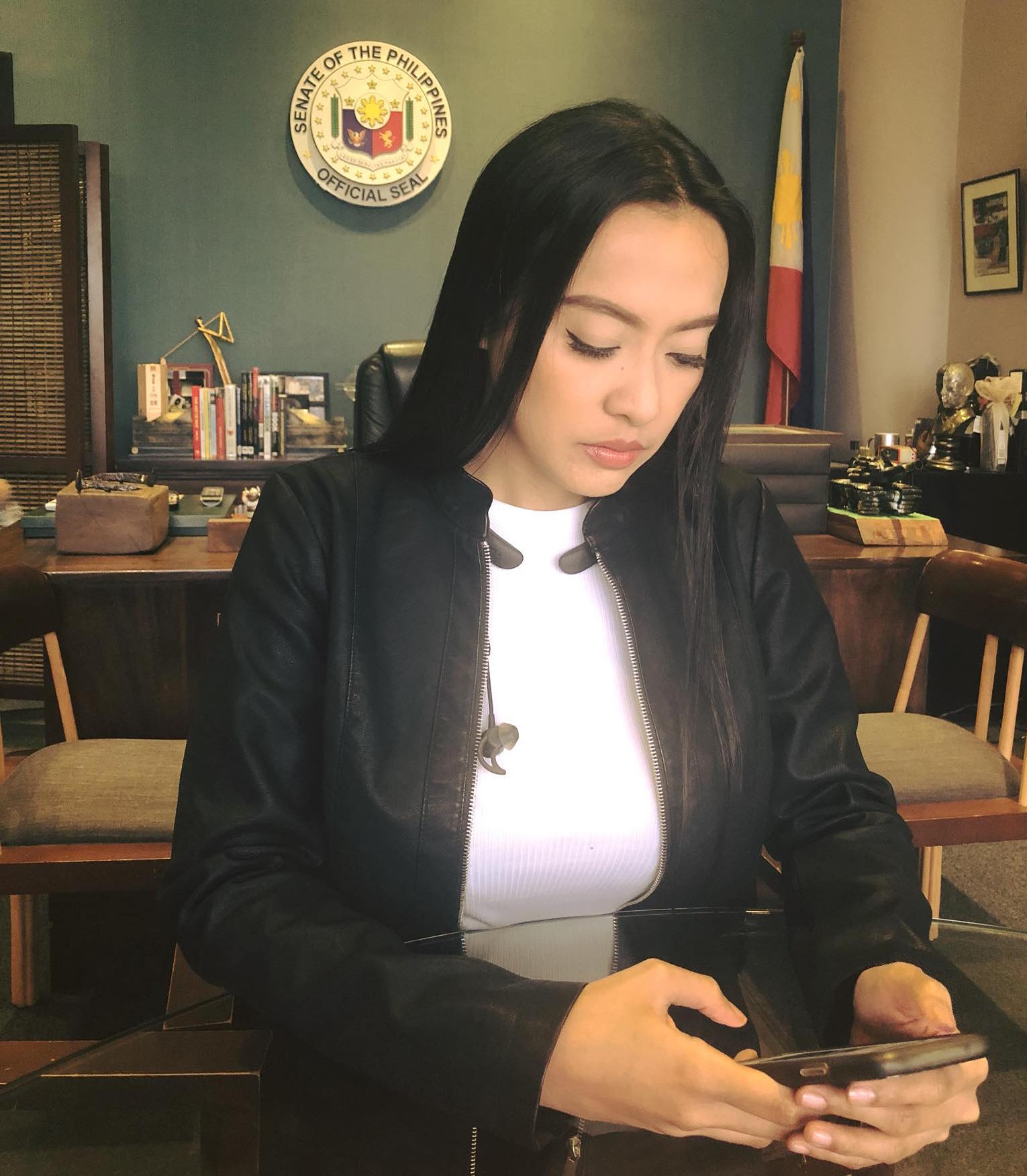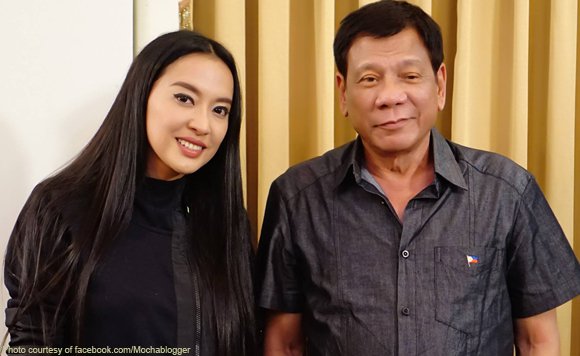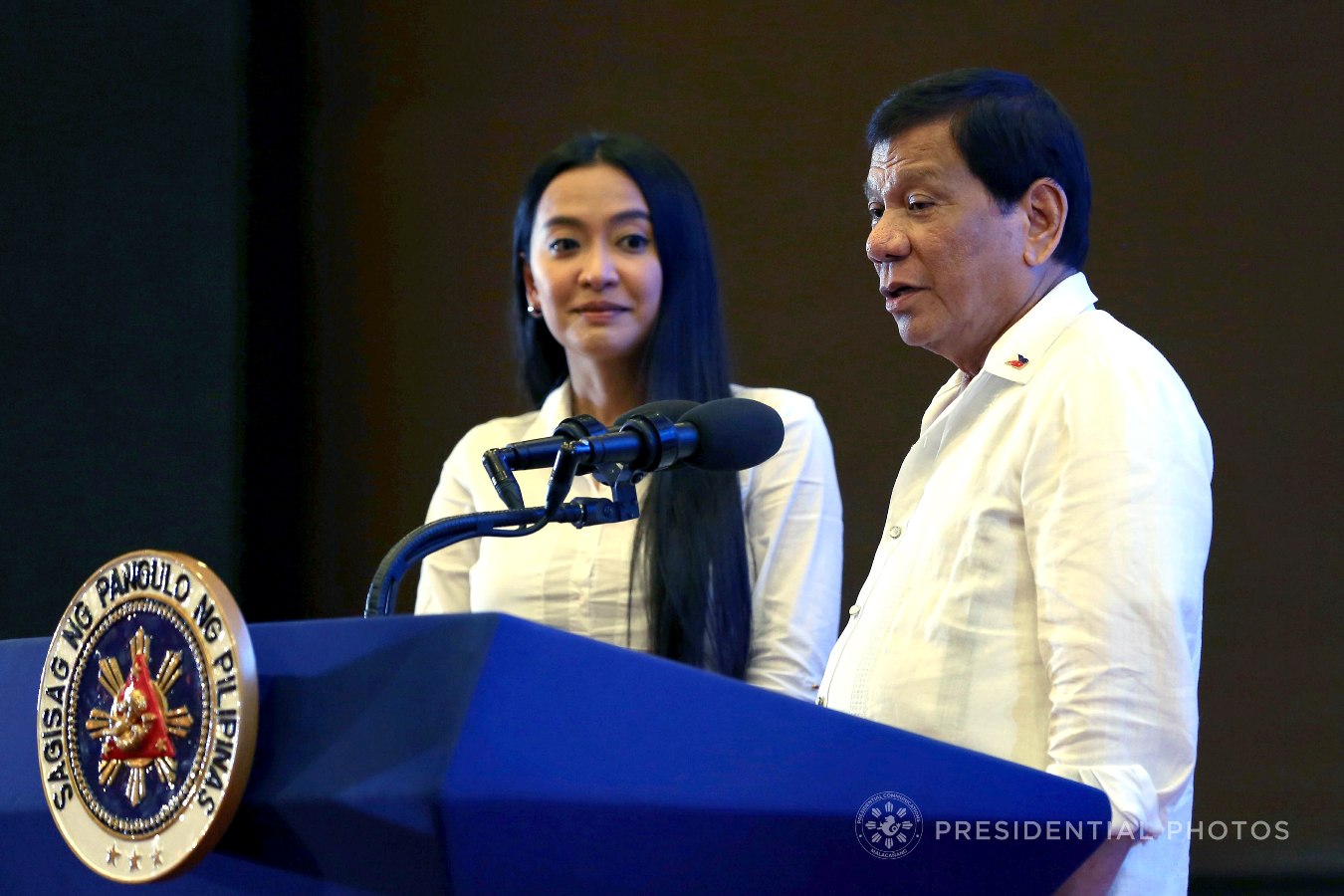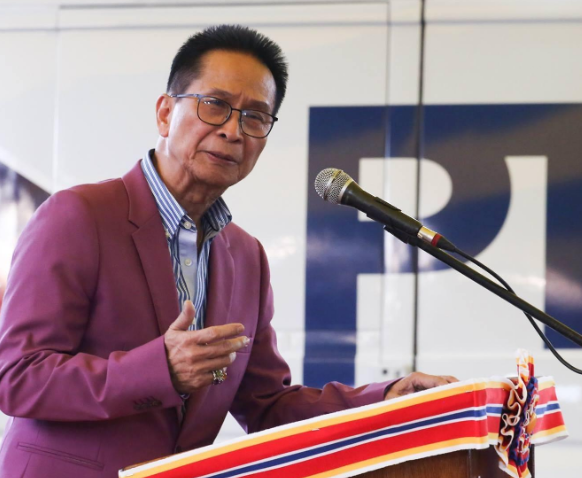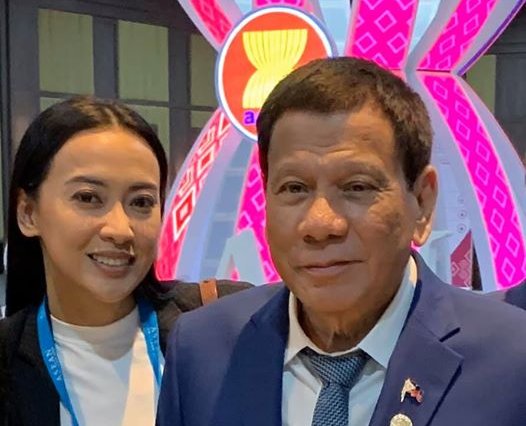While vowing to bring war against some lawmakers and critics of the Duterte administration, resigned Presidential Communications Operations Office Assistant Secretary Mocha Uson will continue to be beset by for battles before the Office of the Ombudsman.
She exits government with three complaints filed against her before the anti-graft body.
The first was filed in September 2017 by Sen. Antonio Trillanes IV for three counts of online libel for spreading “false and malicious” allegations on his supposed offshore bank accounts (See VERA FILES FACT SHEET: What is malice in libel cases?. Also see VERA FILES FACT CHECK: Use of ‘alleged’ not a defense against libel).
The second, also for spreading “fake news,” was filed in April 2017 by Akbayan Youth who charged her with grave misconduct, serious dishonesty and conduct prejudicial to the best interest of service.
The latest was filed on Sept. 20 by advocates for persons with disabilities (PWDs) for mocking the sign language in a viral Facebook video. A similar complaint has been filed against Uson and fellow blogger Drew Olivar before the Commission on Human Rights.
PWD advocates have charged Uson with violating the Code of Conduct and Ethical Standards for Public Officials and Employees, Civil Code of the Philippines, Cybercrime Prevention Act, Magna Carta for Persons with Disability, and the United Nations Convention on the Rights of Persons with Disabilities
National Council on Disability Affairs Executive Director Carmen Reyes-Zubiaga said Uson and Olivar indeed violated the Magna Carta for PWDs and the code of conduct for government officials.
Both Uson and Olivar have issued a public apology.
Below are some quick facts relevant to the latest complaint.
What provisions of the Magna Carta for PWDs did Uson and Olivar violate?
Republic Act 9442, the amended Magna Carta for PWDs, prohibits verbal, nonverbal, ridicule and vilification against PWDs.
Article 4, Section 39 of the law defines public ridicule “as an act of making fun or contemptuous imitating or making mockery of persons with disability whether in writing, or in words, or in action due to their impairment/s.”
Section 40 further states:
No individual, group or community shall execute any of these acts of ridicule against persons with disability in any time and place which could intimidate or result in loss of self-esteem of the latter.
The first violation carries a fine of from P50,000 to P100,000 or imprisonment of from six months to two years, or both. Any subsequent violation is punishable by a fine of from P100,000 to P200,000 or imprisonment of from two years to six years, or both.
How is the United Nations convention on PWDs applicable to the complaint against Uson and Olivar?
The Philippines is a signatory to the United Nations Convention on the Rights of Persons With Disabilities (UNCRPD), which seeks to promote and protect the rights and dignity of PWDs.
Article 15 of the convention states that countries must protect the physical and mental integrity of persons with disabilities. It guarantees them freedom from torture and from cruel, inhuman or degrading treatment or punishment, and prohibits medical or scientific experiments without the consent of the person concerned.
Article 9, which focuses on accessibility, requires countries to identify and eliminate obstacles and barriers and ensure that persons with disabilities can access their environment, transportation, public facilities and services, and information and communications technologies.
Why is the code of conduct for government officials relevant to the case?
Republic Act 6713, or the Code of Conduct and Ethical Standards for Public Officials and Employees, admonishes civil servants against discrimination.
Section 4(c) states:
Justness and sincerity. — Public officials and employees shall remain true to the people at all times. They must act with justness and sincerity and shall not discriminate against anyone, especially the poor and the underprivileged.
What is sign language?
The U.S. National Institute on Deafness and other Communication Disorders (NIDCD) describes sign language as language that “employs signs made by moving the hands combined with facial expressions and postures of the body.”
Two major categories of sign language are used in the Philippines.
Dr. Marie Therese Angeline Bustos, sign language interpreter and special education professor at the University of the Philippines in Diliman, said in an earlier interview the Filipino Sign Language (FSL) or the American Sign Language (ASL) is “naturally emanating from the Deaf.”
The other, “Artificial Signing System (ASS),” follows certain grammar rules, she said.
“FSL has nothing to do with spoken Filipino. It basically refers to sign language used by the Deaf community in the Philippines,” Bustos said.
Are there bills in Congress pertaining to sign language?
The House of Representatives and Senate have passed on third and final reading the proposed “Filipino Sign Language Act.”
House Bill 7503 was unanimously passed on July 31 and Senate Bill 1445 on Aug. 28, both seeking to declare FSL as the national sign language of the Filipino deaf and the official sign language of the government in all transactions involving them,, as well as a medium of instruction.
Sen. Paolo Benigno “Bam” Aquino IV, the bill’s sponsor, traced the use of sign language in the country to 1596. “FSL has since evolved to be an effective visual language that is well-researched, based on Filipino culture and history, and even incorporates indigenous elements,” he said.
What is the role of mass media in promoting improved access for the deaf?
The UNCRPD encourages the media to portray PWDs “in a manner consistent with the purpose” of the convention. It further urges the media, including information providers through the Internet, to make their services accessible to PWDs.
The country’s Magna Carta for PWDs in Section 22 encourages television stations to provide a sign language inset or subtitles in at least one newscast program a day and special program covering events of national significance.
The FSL bill pending in the Senate would make FSL the “means of interpretation in broadcast media, delivering news and information consistently to the deaf community.” It would task the Komisyon sa Wikang Filipino (KWP), Kapisanan ng mga Brodkaster ng Pilipinas (KBP), Movie and Television Review and Classification Board (MTRCB) and other stakeholders to establish a national system of standards and accreditation for interpreting FSL in media.
Under the House version, the KBP and MTRCB would be mandated to require FSL interpreter insets, compliant with accessibility standards for television, in news and public affairs programs.
(VERA Files has produced books and videos on PWDs under the Fully Abled Nation initiative of The Asia Foundation from 2012 to 2016. Watch the video “Call them Deaf” on how to properly interact with deaf people. The video is part of video tutorial series on Interacting with PWDs. VERA Files also published “The Right to Vote: Filipinos with Disabilities and the 2013 Election” and “Reporting on Persons with Disabilities.”)
Sources:
National Council on Disability Affairs, Republic Act 9442
United Nations, Convention on the Rights of Persons with Disabilities and Optional Protocol
Office of the Ombudsman, Republic Act 6713
National Institute on Deafness and other Communication Disorders
House of Representatives, House approves “Filipino Sign Language Act”
Senate of the Philippines, Senate approves Filipino Sign Language bill
(Guided by the code of principles of the International Fact-Checking Network at Poynter, VERA Files tracks the false claims, flip-flops, misleading statements of public officials and figures, and debunks them with factual evidence. Find out more about this initiative and our methodology.)
